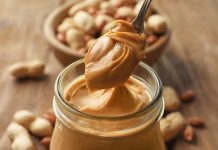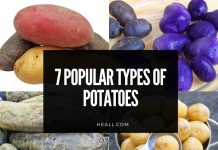You are what you eat. It’s true; it makes sense. Your body assimilates the food you eat into the atoms and molecules that make up the your cells.
Smoking, drinking alcohol, lack of exercise and an unhealthy diet are the major contributors to cancer-related deaths. Fortunately we are not helpless in regard to our health; we can control each of these factors in our own lives. Smart food choices can decrease your risk of cancer, strengthen your immune system, protect your health and enable you to feel better as a whole.
Rachael Stolzenberg-Solomon, a researcher at the National Cancer Institute advises that the “easiest, least-expensive way to reduce your risk for cancer is just by eating a healthy diet.”
Recent research shows that a diet rich in cancer-fighting substances is a predominantly plant-based diet–a vegetarian diet. Karen Collins, a nutritional adviser for the American Institute for Cancer Research, suggested, “If you have two-thirds of plant food on your plate, that seems to be enough to avoid excessive amounts of food high in saturated fat.”
Table of Contents
The Okinawa Diet
Studies have shown that some of the longest living and healthiest people live in Okinawa. The diet promises a healthy loss of body fat as well as body weight and a combination of the right carbohydrates, fats and proteins to keep you healthy and strong.
The major component of the diet is a daily helping of seafood which contains the complete range of 72+ natural trace elements–a natural anti-cancer food. Studies from Sri Lanka show that the residents have a cancer breast rate that is 21 times lower, a lung cancer rate that is 36 times lower, the prostate cancer rate is 137 times lower and the colon cancer rate is 187 times lower than that of most western countries.
Cancer-Fighting Foods
Three factors that work together to support the immune system and help your body resist cancer are all found in vegetables. A primarily vegetarian diet will support your general health because plants have more fiber and cancer fighting nutrients with less fat.
A vegetarian diet consists mainly of vegetables, fruits, nuts, legumes or beans, and whole grains such as wheat and rye. A plate of food should consist of two-thirds vegetables or fruits, and one-third of dairy products, meat or fish. Avoid processed foods if possible. For example eat an apple rather than drink a glass of apple juice, or instead of oatmeal-raisin cookies, enjoy a serving of oatmeal with raisins added.
Examples of cancer-fighting foods include broccoli, beans, berries, tomatoes, and nuts. When choosing vegetables, remember the colors. Eat an assortment of red, orange, yellow and green vegetables every day. These vegetables contain antioxidants and vitamins such as beta-carotene, vitamin C, vitamin E, and selenium. The colors represent different phytochemicals which fight disease by increasing natural immunity.
Be sure to wash and clean fruits and vegetables to ensure that all pesticide residues are removed. Avoid over-cooking vegetables because this leaches out vitamins from the food. Lightly steam vegetables until they are tender, and keep the cooking water to add it to other dishes so that a minimum of nutrients are lost through the cooking process.
Raw fruits and vegetables contain the highest amounts of vitamins and minerals. It’s a good idea to enjoy some raw foods each day in order to maximize the total amount of nutrients consumed.
Some spices boost immunity as well as add flavor to foods. Curry powder, ginger, tumeric, basil, rosemary, and coriander are good cancer-fighters. Included in this list is garlic which helps prevent the formation of carcinogens produced in the stomach when you eat foods containing preservatives. As an added benefit, garlic keeps mosquitoes and vampires away!
Drink water. Our bodies are approximately 70 percent water and it is essential to all digestive processes in the body. Water flushes out waste and toxins, stimulates the immune system, and transports nutrients to tissues throughout the body.
Meats
Avoid cured, dried and preserved meats such as sausage and bacon as well as smoked, over-cooked and charred meats. These foods sometimes contain carcinogens produced during processing. Carcinogens are cancer-causing chemicals. Be sure that barbecued meats cook at the proper temperature to ensure that bacteria such as E. coli and salmonella are killed.
Be sure that you prepare foods properly. Inadequate preparation and preservation can create problems and destroy your anti-cancer efforts.
Source:
The Okinawa Diet Plan: Get Leaner, Live Longer, and Never Feel Hungry by Bradley J. Willcox, D. Craig Willcox, and Makoto Suzuki; Three Rivers Press; 2005



